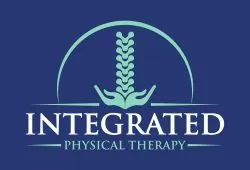It’s no secret that pregnancy isn’t any walk in the park. In fact, 50-70% of pregnant women experience chronic back pain during their pregnancies (defined as a persistent pain lasting longer than 2-3 months) and many simply push through this discomfort. Pregnancy brings a slew of aches and pains, due to added stress, weight gain, hormone increases, and changes to the body’s posture and center of gravity.
Many women experience a decrease in physical activity during their pregnancies as well, due to their overall discomfort, in tandem with juggling their seemingly endless daily responsibilities of working hard and preparing for new life. Lack of physical activity can make pregnancies more difficult and can leave a mother’s body under-prepared for the strenuous birthing journey it is about to embark on. For more information on how prenatal rehab can help ease some of your pregnancy pains and help your body prepare for giving birth, give our office a call today.
What is prenatal rehab?
When people hear the term “rehab,” they typically think of it in terms of recovery. However, that is not always the case. Certain rehab treatments can be performed in preparation for a physically demanding event, such as giving birth or undergoing surgery. Prenatal rehab can help ease the stresses that your body is currently going through and help it better prepare for birth. By participating in prenatal rehab, you can help make pregnancy, birth, and recovery much easier on yourself.
The factors adding up to your pain and discomfort can all be addressed through prenatal physiotherapy treatments. These treatments focus on the improvement of posture, flexibility, muscle strength, joint alignment, and nerve involvement. When these factors are all functioning in harmony at their peak levels, your stress, fatigue, and achiness will begin to subside.
What to expect with prenatal rehab:
At your initial visit, your physiotherapist will perform a thorough evaluation. He or she will examine common problem areas, such as gait, range of motion, posture, and overall mobility to determine what the best course of treatment will be for you. After your evaluation, your physiotherapist will create a specialized treatment plan, keeping in mind your medical history and any health restraints you may have.
A large part of prenatal rehab includes neuromuscular re-education. Essentially, your physiotherapist will help you re-train certain muscles on how they are meant to work. The effects of pregnancy take a large toll on your body, especially when exercise is limited, and sometimes muscles need to be trained once again on how to function properly. This may include anything from back and core exercises to pelvic floor strengthening. Exercise is important during pregnancy unless stated otherwise by your obstetrician. Women who exercise during pregnancy tend to recover much quicker, and their babies tend to be healthier.
Other forms of treatment may be suggested as well, such as manual therapy to mobilize joints and relieve stress and inflammation, or ergonomic training to make juggling your numerous daily responsibilities a bit easier. Your physiotherapist may also suggest some helpful home remedies to ease discomfort and promote a healthy pregnancy (many of which can be found in our ebook above!) Overall, prenatal rehab will help in improving the factors that may be holding you back.
Schedule your consultation!
Pregnancy is hard work – it’s okay to get some help! Schedule a consultation with one of our physiotherapists today, and find out how our prenatal rehab services can benefit you. We’ll help you make your preparation for your new bundle of joy as smooth as possible!




